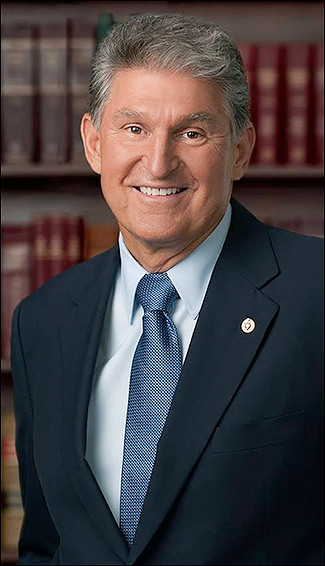By Jim Ellis
June 18, 2021 — West Virginia Sen. Joe Manchin (D) offered a detailed compromise Wednesday to the S.1/HR-1 package that will be debated and likely voted upon in the Senate next week.The controversial legislation would nationalize voting procedures, and Sen. Manchin has said he would not support a final package unless Republican votes could be recruited to break a filibuster. According to news sources, no Republican is currently supportive.
Sen. Manchin released what he terms is a compromise measure, (Voting Legislation For the People Act Compromise), and presumably a substitute for S.1, or “For the People Act,” as it is formally entitled. His proposal includes 26 points in addition to five sub-points.
The chances of the Democratic leadership accepting the Manchin compromise on face value are virtually nil because his measure does not include some of the key planks found in the S.1 language.
For the purposes of this column, let’s look at a few of what could be the more controversial pieces of the Manchin offering both from a political and constitutional perspective.
• Point 3 states that the measure would “ban gerrymandering and use computer models” for redistricting. Accepting this would be difficult since there is no common definition of “gerrymandering.”
Additionally, though computer models are already used in every state to draw districts, Sen. Manchin may be referring to the Iowa process in which the legislature allows the committee staff to draw maps through a specific computer model without regard to an incumbent’s residence but based solely on geographic and some demographic characteristics.
• Point 4, to require voter identification but allow alternative forms of individual proof such as a utility bill, will likely attract objections because documents such as residential bills do not prove citizenship, and therefore do not ensure eligibility to vote.
• Point 5 would institute automatic voter registration at the DMV or federalize the current “motor voter” operations that currently exist in 17 states. In effect, automatically registering everyone through the DMV’s virtually eliminates the purpose of voter registration, which is to ensure that only eligible voters are allowed to participate.
• Point 11 would “allow for maintenance of voter rolls by utilizing information derived from state and federal documents.” This clearly will need further clarification as to which documents would be allowed. The provision, if adopted, could also conflict with the Census Bureau’s drive to enact a “privacy differential” that would prohibit certain individual personal information from becoming public.
• Point 13 addresses a topic that became a sticking point in the 2020 election cycle, which relates to people attempting to vote in a precinct other than the one in which they are registered. The Manchin compromise would force the states to count all provisional ballots regardless from which precinct they came. This will be heavily challenged because it could theoretically allow individuals to cast multiple ballots that could not be challenged.
The Manchin measure also contains some Ethics and Executive Branch reform suggestions along with updating the proposed John Lewis Voting Rights Act. The latter proposed amendments would mostly relate to restoring the Justice Department authority over what was termed “preclearance” for any change in a designated state’s voting law or procedure.
Sen. Manchin has consistently stated that he wants to see preclearance restored, a practice that the US Supreme Court’s ruling in the Shelby County (AL) case from 2013 effectively eliminated. Manchin, however, wants the preclearance requirement applied to all 50 states as opposed to just those determined to have a historical record of past racial discrimination.
One provision that would be immediately challenged in court is Point 3 in the Ethics section that would “prevent lobbyists from working on behalf of foreign entities.” Such a condition appears to violate an individual’s 1st Amendment rights.
Next week’s S.1 proceedings will ignite political fireworks, and it remains to be seen just how successful Sen. Manchin will be in getting all or parts of his compromise package adopted, assuming anything at all can pass.


